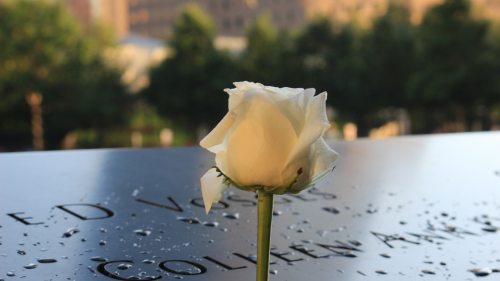Coping with the loss of a loved one is a deeply personal experience. There’s no blueprint on how to mourn. Everyone needs to remember that there is no one-size-fits-all approach to handling grief. In recent years, a growing number of individuals/ families have chosen to forgo traditional funerals in favor of alternative ways to honor their deceased loved ones.
Unfortunately, something out of the norm often incites judgment from others. This decision to forgo the funeral services may raise questions and invite criticism, but it is important to understand that each person’s grief journey is unique. Let’s delve into the topic of not holding a funeral, exploring the reasons behind this choice and the alternative avenues to honor deceased loved ones and cope with the loss.
Understanding Personal Preferences and Circumstances
No two people are created equal, so individuals will always have different wishes and preferences even over sensitive matters like funeral planning. It is essential to acknowledge that there is no right or wrong way to grieve.
Although people may have suggestions, it is crucial to look at what’s in your heart because you know your deceased loved one best. It is also vital to respect individual preferences and decisions. Supporting those who choose not to hold a traditional funeral because of their unique circumstances and personal beliefs is essential to their healing process.
Common Reasons Others Choose Not to Hold a Funeral
Many factors can contribute to an individual or family choosing to forgo the funeral. It is important to listen with empathy and understand the factors that contribute to this choice. For starters, financial constraints often play a significant role. The costs associated with traditional funerals from purchasing a casket to the gravesite can be substantial.
Additionally, cultural or religious beliefs may dictate alternative ceremonies that are preferred over a conventional funeral. For example, in certain Native American cultures, burial practices are unacceptable. Tribes prefer cremation as it is rooted in the belief that the body should return to the elements so the spirit can move on freely. Cremation is a way to release the soul from the physical realm, helping its journey to the afterlife. In such cases, burial with a casket would not align with cultural practices. It’s important to recognize and respect the diversity surrounding death and mourning, allowing communities to uphold their traditions.
Moreover, family dynamics and conflicts can come into play, where unresolved issues or strained relationships make it challenging to come together for a formal gathering. Some feel uncomfortable with rituals, so they prefer alternative ways to honor the dead. Thus, it is crucial to approach this delicate matter with empathy, understanding that each person’s decision is influenced by their unique circumstances and emotions. By listening attentively and respecting choices, you can better support those navigating the difficult process of saying goodbye to a loved one.
Exploring Alternative Funeral Options
In these modern times, bereaved family members are not limited to traditional funerals. They can celebrate the deceased in ways that align with their beliefs, values, and preferences. And their decision must be met with compassion and open-mindedness. In doing so, each person/ family can create a meaningful experience that honors the memory of their loved one in a way that feels right for them. Here are some alternative examples:
- Intimate Gatherings: Some prefer to hold a small, private gathering with close family and friends in attendance. These intimate gatherings provide a safe space for sharing memories and emotions. It’s a chance for loved ones to come together and support one another during this challenging time.
- Memorial Services: A service at a later date or in a different setting gives the bereaved family members time to cope with their loss. These services usually focus on celebrating the life and legacy of the departed. It’s an opportunity for people to come together and pay their respects when emotions aren’t as raw.
- Meaningful Rituals: Creating personalized rituals that reflect the values and passions of the deceased can be a powerful way to honor their memory. Incorporating activities that hold special significance can provide comfort and a sense of connection with the loved one who has passed.
- Acts of Service: For some, channeling grief into acts of kindness or charity in memory of the loved one can be a healing path. Supporting meaningful causes allows their legacy to continue, making a positive impact in the world in their honor.
Coping with Potential Judgment or Criticism
If you wish for an alternative to a funeral, open and honest conversations with close family and friends can help them understand your choice. This can provide insight into your perspective and help others appreciate the thoughtful consideration you’ve put behind your plans.
It is also important to be firm in your decisions. Communicate your boundaries as this can help protect your well-being during this sensitive time. This will also help you navigate potential judgment or criticism with grace. To help you decompress in these trying times, you can try the following:
- Creating Personal Memorials: Designing a memorial space in your home can serve as a meaningful reminder. Displaying photographs, mementos, or symbolic items that evoke cherished memories can provide solace and keep their presence alive in your heart.
- Sharing Stories: Meet up with friends and family to share their favorite stories as this keeps the deceased’s spirit alive while fostering a sense of connection and support. Go down memory lane and engage in conversations that celebrate the deceased’s life.
- Healing Activities: Find solace in therapeutic practices such as art, writing, or meditation. Exploring support groups or seeking professional counseling if needed provides additional comfort during this difficult time.
Ultimately, forgoing a traditional funeral is a personal one driven by unique circumstances, preferences, and beliefs. By embracing personalized healing, you can find solace and honor the legacies of your loved ones in a way that resonates with your values.


